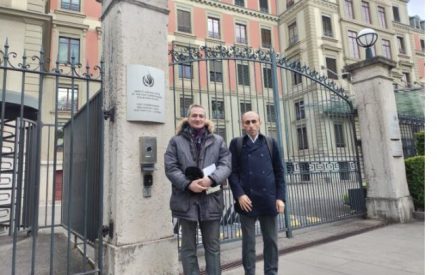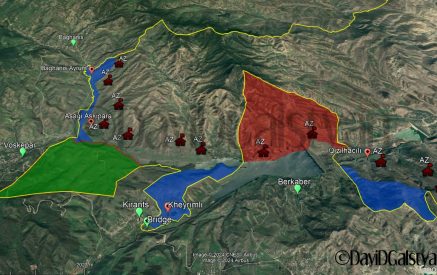The European Court of Human Rights (ECHR) has issued about 10 judgments, which recognize the violations of the property owners’ rights for the territory in the center of Yerevan recognized as an “eminent domain”, but it has not yet caused systemic changes. This is proved by the group of civil society organizations. Studying our country’s social, economic and cultural rights, the group prepared a report. Despite the ECHR’s decisions, in one case, the government has not compensated the amount provided for destroy of a citizen’s property. In other cases, the government, in violation of the decision on reconciliation agreement, has offered the plaintiffs some apartments in newly built private residential buildings, which, however, were actually sold to other people.
The authors of the report mention that in compliance to the RA Law on “Alienation of Property for Public and State Needs”, the state does not guarantee the protection for the rights of its citizens whose property is alienated “for public and state needs.” “Though the decision-maker is the government, anyway, the agreements on alienation of the property are signed between the former and the new owners, and the government refuses to take any responsibility. Currently, there are hundreds of homeless victims suffered from “public use” who were deceived by companies that have promised to give them new apartments instead of their property, which, however, were not built in time, or were sold to more than one owner, or were simply declared default for no-execution of other contractual obligations,” says the report, which was submitted to the UN Human Rights Council by the group of civil society organizations.
Note that the Open Society Foundations – Armenia organization supported the preparation works of this report. According to the study of the group, currently, 365 owners have become homeless, because one of the companies was recognized bankrupt. Several companies did not provide building of a new property instead of the confiscated one. Others have sold the ready-made apartments to a few owners. The authors of the document mentioned that in 2005, 34 families in Syunik have lost their private lands without a notice and agreement because of a road construction. “The promises of compensation still remain hanging in the air, to the point, the residents still pay the property tax for their lost lands.” The members of the group, studying the alienation practice in our country, also record that the public property is managed and sold by failing to ensure public participation in the decision-making process, though such practice is prohibited by a number of legal acts. “The decisions of administrative bodies are not disputed in the courts, as it’s difficult for the citizens to prove how their rights are violated.
Moreover, NGOs do not receive a proper plaintiff status for the cases related to public interest and resources. In September 2010, the Constitutional Court’s decision ratified that in some defined spheres, the justice should be available to NGOs, if the protection of rights in these spheres is provided by the NGO Charters, as well as the cases, by which the lower courts instances have been ineffective.” To avoid all of this, the member of the group offer making amendments in the RA Law on “Alienation of Property for Public and State Needs”, by clarifying the grounds for recognition of “eminent domain”.
Read also
Lusine BUDAGHYAN






















































